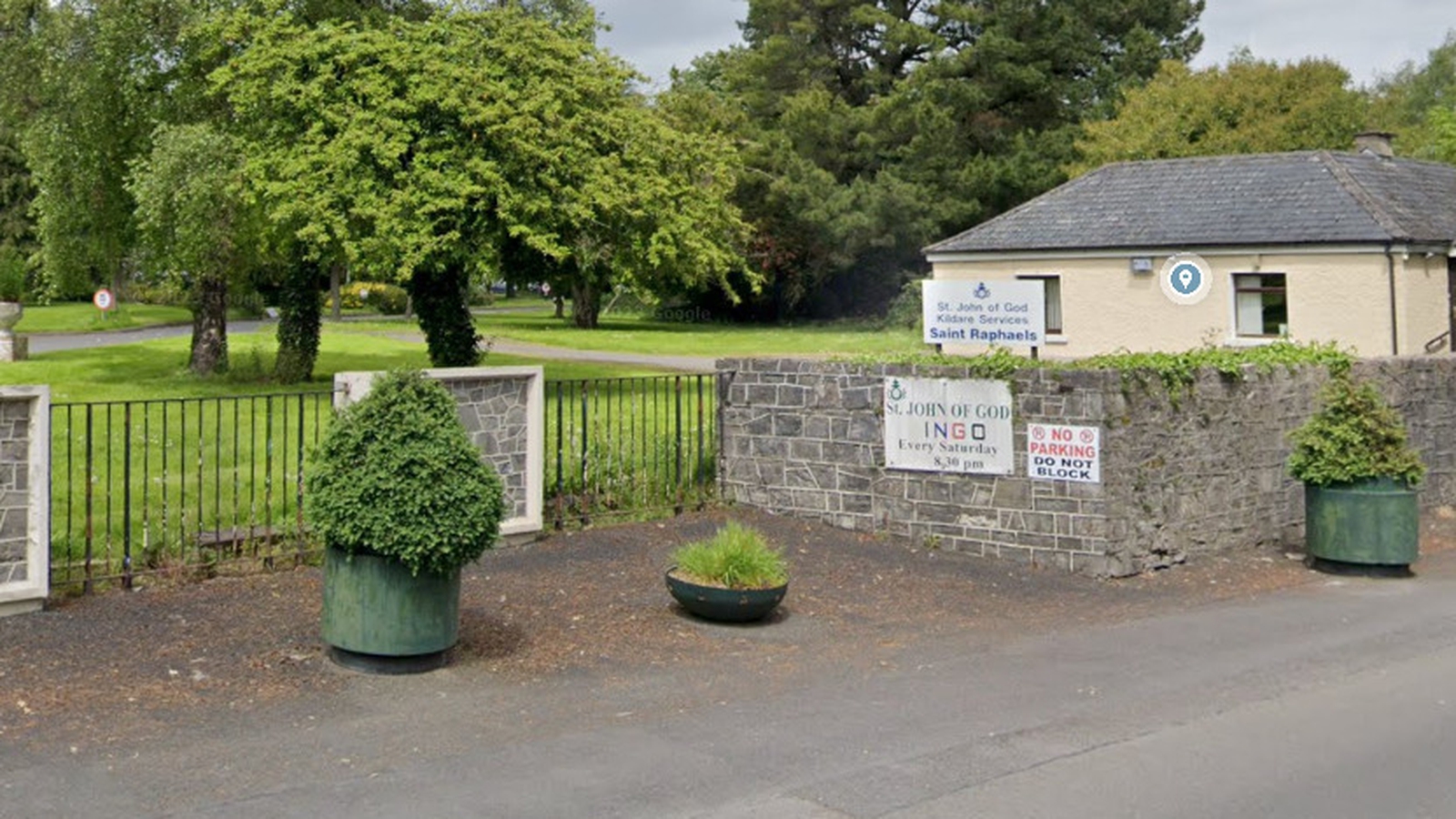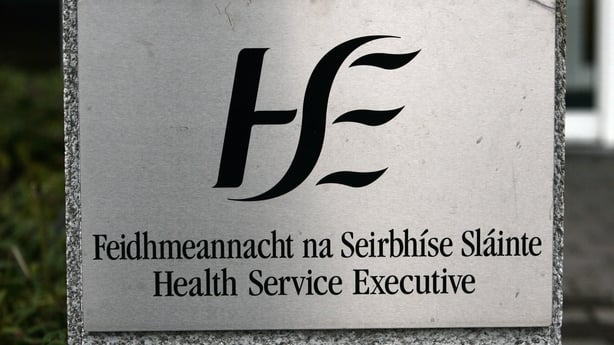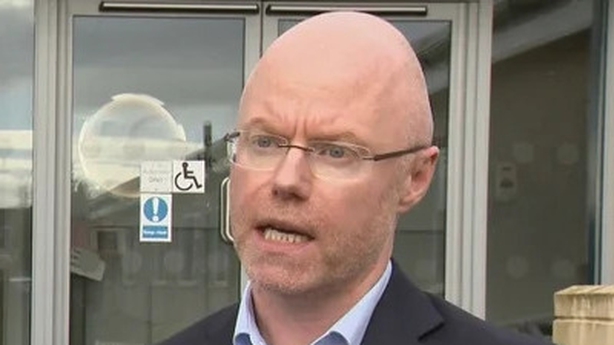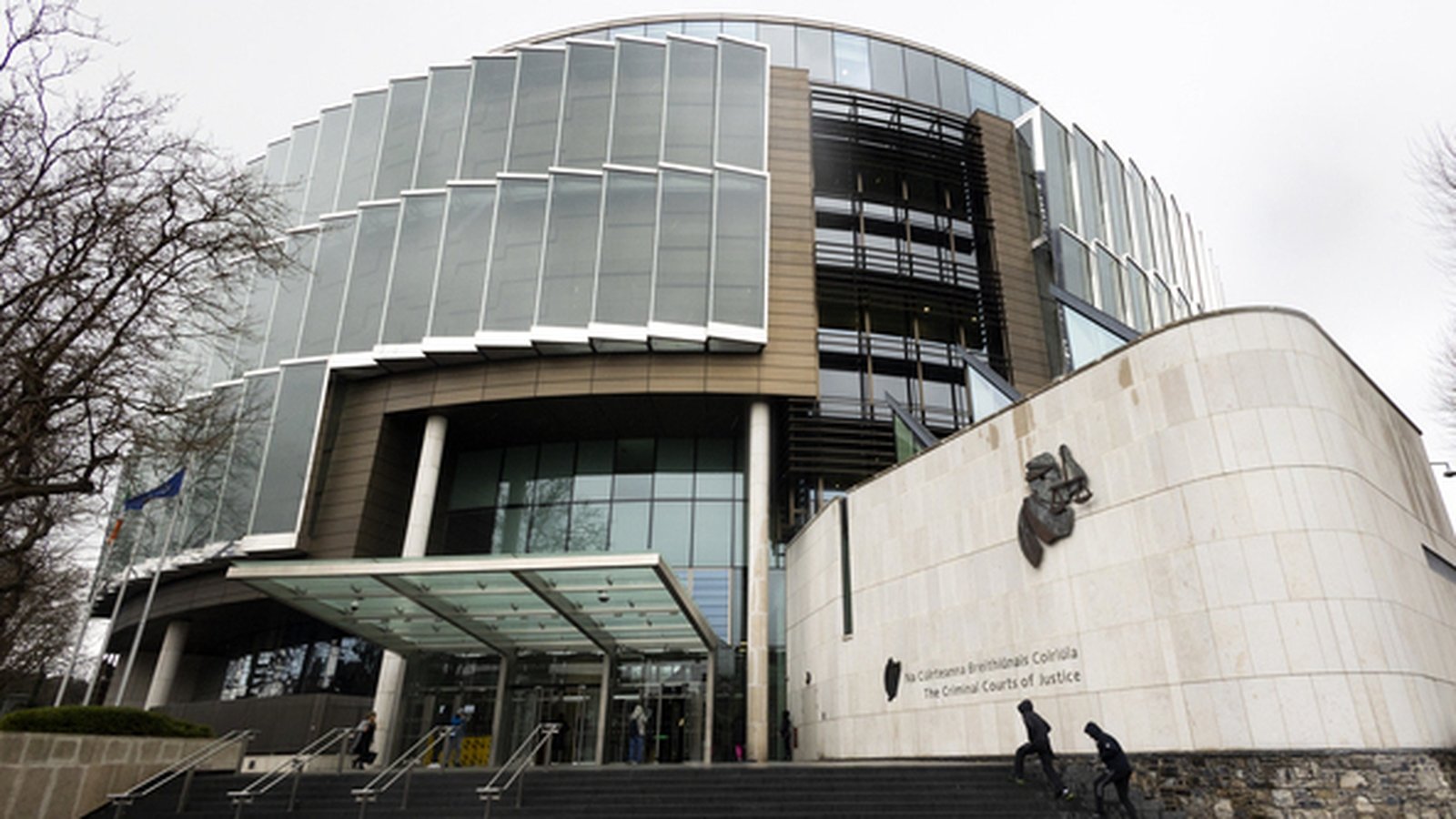St John of God has ‘enough money’ for services

The Chief Executive of the Health Service Executive has hit out at Saint John of God Community Services (SJOGCS) over its communications regarding the transfer of operations to the HSE, adding the service has “more than enough money” to continue its operations.
In a letter to the SJOGCS Board, Bernard Gloster expressed his “absolute shock” at what he described as “the anxiety being unnecessarily caused to many people” by the actions of the service’s board and executive.
Mr Gloster stated: “I would have thought an organisation of SJOG stated ethos and values could distinguish between a complex process between organisations and the vulnerability of the people we are all paid to serve”.
The decision by Saint John of God Community Services follows what it described as “the failure to conclude a funding agreement with the HSE” aimed at “securing the future financial sustainability of the organisation”.
A formal letter confirming the decision has been issued by the board to the HSE and the transition process is expected to be completed by 15 August.
Mr Gloster said the HSE would have “no alternative” but to respond to the “very misinformed public narrative” that had been created.
“SJOG is a fully funded service with a breakeven position for recent years and all of the protections afforded to a Section 38 body and in that context you actions today can be nothing other than a source of great concern”.
Mr Gloster said that if the organisation remains insistent on withdrawing from service provision, despite the “substantial assistance” in a €200 million grant to it annually, “then we will require them to do so in an orderly and appropriate fashion having regard to the rights of service users and their staff”.
He added: “I do not accept it is appropriate or responsible for a declaration of handover by August this year. The HSE will consider carefully its options if this eventuality arises.
“For now, we urge SJOG to remove the anxiety for families and continue their engagement safe in the knowledge they have more than enough money and assurance to avoid such an immediate action.”

In a statement, the HSE said it was “shocked and disappointed” at the announcement by SJOGCS that it intends to step away from the provision of services and the manner in which it has chosen to communicate the news to families.
“We have worked with them over the last number of years on funding-related matters. SJOGCS’s services have had an in-year break even each year for several years, with the help of substantial HSE support, and there is no reason to believe that 2024 will be any different,” the statement said.
The HSE said it was open to further meetings with SJOGCS to discuss the resolution of its financial position “remembering that we have to consider all of those in need of the services of the many service providers in the disability sector”.
However, it re-emphasised there was sufficient funding and assurances to continue to provide services and to pay bills “as they fall due”.
“As a Section 38 Organisation, they are afforded all of the protections associated with that status, and their staff are paid and pension treated as public servants,” the statement said.
The HSE said the priority was to continue engagement with SJOGCS, with the support of the Department of Children, Equality, Disability, Integration and Youth and the Department of Health, to resolve historical deficit issues.
“As recently as February 15th, the HSE CEO set out an extensive financial package to the SJOG and there is no reason to transfer service or indeed cause the anxiety to families and the public that has been in the public domain today,”, the statement said.
It added that the Department of Children, Equality, Disability, Integration and Youth would continue work to address the longer and broader task of determining the overall liabilities within the disability sector.
“The Department confirmed again that the HSE will continue to provide the necessary liquidity to ensure that SJOGCS can address cash issues while this process is underway.”
Donnelly urges St John of God, HSE to ‘re-engage’ on funding issue
Minister for Health Stephen Donnelly said the HSE, the Department of Health and the Department of Children, Equality, Disability, Integration and Youth had engaged “in good faith” with the provider.
“I would encourage all sides to continue that process rather than writing to families, rather than writing to patients, about transfer of services at this time,” he said.
“I believe all sides should re-engage in good faith and find a way to a sustainable financial plan for Saint John of God.
“They provide important services and disability and in mental health and I would like to see those services continue,” he said.

Mental health services are delivered under the remit of Mr Donnelly’s department while disability services are under Minister Roderic O’Gorman’s department.
SJOGCS is one of the largest providers of services for people with intellectual disabilities and mental health difficulties.
‘Very sad’ day for service, provider says
Chief Executive Clare Dempsey described today as “a very sad” one for the service, adding that onfirmation of the transfer came with “profound regret and deep disappointment”.
“Today represents the saddest day in the history of our long-established service, which has been in operation since the 1930s. I know it is deeply disappointing for those we support, our staff and the many thousands of families around the country with whom we hold such strong ties and bonds with over so many years.
“We will do all in our power to conduct a smooth transfer of service to HSE and will seek to minimise the impact on the 8,000 people availing of our services, as well as our 3,000 valued members of staff,” she said.
The independent acute psychiatric teaching hospital Saint John of God Hospital, based in Stillorgan, Co Dublin, is not affected.
SJOGSC assists around 8,000 people
Saint John of God Community Services provides services to approximately 8,000 children and adults and has a deficit of €32.5 million.
It employs 3,000 staff and volunteers in 300 locations across Dublin, Kildare, Kerry, Wicklow, Meath and Louth.
In a statement, SJOGCS said there had been ongoing correspondence with the HSE in recent months expressing serious concern regarding its accumulated deficit and the sustained lack of adequate funding to allow for its continued financial and operational sustainability.
In recent weeks, the matter was the subject of engagement with the HSE, the Department Children, Equality, Disability and Integration and the Department of Health.
The decision to transfer services has been formally ratified by the Board of Saint John of God Community Services and the Board of Saint John of God Hospitaller Services Group, of which SJOGCS is a subsidiary.
It is not the first time that SJOGCS has announced the transfer of responsibility to the HSE.
In 2020, the HSE agreed to conduct a Sustainable Impact Assessment (SIA) of SJOGCS, when the board announced, it would have to transfer the service to the growing deficit.
The objective of the SIA was to co-design “a high-quality service that complied with legislation and national policy aligning with agreed service delivery models”.
It also sought to establish “the cost of delivering the service and to obtain the funding required to deliver the agreed service models”.
However, it appears the SIA, which was completed last October, did not meet the objectives of Saint John of God Community Services.
The SIA has not yet been published according to the HSE, because it continues to be “a working document”.
Financial pressures discussed
Parents of those who use the service have also not had sight of the final document despite numerous requests.
Last month, Saint John of God Community Services Board members and the executive management team met a HSE delegation to discuss the SIA.
It is understood that the serious financial pressures and potential consequences arising from the potential transfer of services were discussed. Talks between the two sides resumed this month, but agreement was not reached.
It means SJOGCS, which is a Section 38 organisation, will now become the full responsibility of the HSE. It is not clear at this point what this will mean for service users.
The HSE has noted that when final figures “close out” for 2023, it will have funded Saint John of God Community Services just over €200 million for the 2023 accounting period.
“That figure has increased annually over the years addressing pay award, new developments and other funding needs fully,” it said.
Since 2019, SJOGCS “broke even” each year according to the HSE. It also noted that the deficit on the books was accrued prior to 2019.
“An agreed portion of that deficit has been validated as being associated with service provision albeit incurred at the discretion of SJOGCS and not with the prior approval of the HSE”, it said.
Indeed, the 2020 annual report of Saint John of God Community Services stated there was a €1m surplus. However, it also noted that this was primarily attributed to “the reduced costs associated with the closure and curtailment of services” due to the pandemic and additional funding by the HSE to meet Covid costs.
“Despite operating with a surplus in 2020, the board is concerned with the underlying underfunding of services. The board as a legal entity is subject to company legislation and cannot continue to operate with this level of underfunding,” according to the report.
The 2020 annual report said the accumulated deficit of €32.4m (which has since risen to €32.5m) had been the subject of “continuous engagement with the HSE throughout 2020 and in prior years”.
SJOGCS said efforts would be made to ensure an orderly transfer of services, with a commitment to minimise disruption to those availing of the services.
It said representatives from the provider “will collaborate with personnel nominated by the HSE” to prepare and implement a plan to transfer services.
“It is expected that staff will transition to the employment of the HSE in accordance with TUPE legislation”, it said.
A transfer of undertakings (also known as TUPE) is when employees are moved to a new employer as part of a legal merger or the sale of a business.
In messages to staff and families today, the board and the executive management team emphasised that every effort had been made to avoid “this difficult decision”.
It acknowledged and thanked them for their support “throughout this difficult period”.
Intolerable situation – group
Saint John of God Hospitaller Services Group – of which Saint John of God Community Services is a subsidiary – said it supported “this very regrettable decision”.
It acknowledged that the board of SJOGCS could no longer preside over what has become an intolerable situation.
“The annual funding allocation from the HSE to Community Services has been insufficient for over a decade. This has negatively impacted the ability to provide services consistent with good practice and respectful of the human rights of those who avail of the services.”, it said.
The Hospitaller Service Group said the termination of the service arrangement was “despite the sustained efforts of the executive and board of Community Services over many years, and particularly over the past three years”.
It noted that the objective of the Sustainability Impact Assessment process was to establish the level of funding required to provide services to the required standard.
“Unfortunately, the HSE has not committed to the core additional funding required to sustain service provision nor addressed the accumulated deficit”.
The Hospital Services Group said it would support Community Services in the transfer of the services to the HSE with a focus on “minimising the distress to our colleagues and to those who avail of the services and their families”.
It said: “The St John of God organisation in Ireland will continue to provide the services of our hospital, our specialist dementia care facility, our housing association, and our schools.
“We will also continue our valuable research programmes and our support for critical services in Malawi, both delivered with the help of money raised by our fundraising foundation”.





